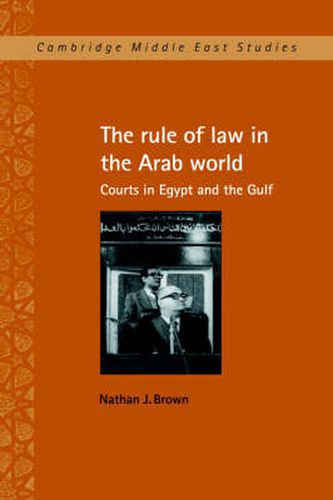Readings Newsletter
Become a Readings Member to make your shopping experience even easier.
Sign in or sign up for free!
You’re not far away from qualifying for FREE standard shipping within Australia
You’ve qualified for FREE standard shipping within Australia
The cart is loading…






Nathan Brown’s penetrating account of the development and operation of the courts in the Arab world is based on fieldwork in Egypt and the Gulf. The book addresses several important questions. Why, for example, did Egypt’s political leaders construct an independent judicial system that limited their own authority? And why does such a system appeal to Arab rulers outside Egypt? While most accounts stress the role of imperialism or liberal ideology, the author maintains that the primary purpose of the system is to provide support for the officially sanctioned order. The model offers similar attractions for other Arab rulers. From the theoretical perspective, the book will contribute to the debates about liberal legality, political change and the relationship between law and society in the developing world. It will be read by scholars of the Middle East, law students and those interested in the history of law and its evolution.
$9.00 standard shipping within Australia
FREE standard shipping within Australia for orders over $100.00
Express & International shipping calculated at checkout
Nathan Brown’s penetrating account of the development and operation of the courts in the Arab world is based on fieldwork in Egypt and the Gulf. The book addresses several important questions. Why, for example, did Egypt’s political leaders construct an independent judicial system that limited their own authority? And why does such a system appeal to Arab rulers outside Egypt? While most accounts stress the role of imperialism or liberal ideology, the author maintains that the primary purpose of the system is to provide support for the officially sanctioned order. The model offers similar attractions for other Arab rulers. From the theoretical perspective, the book will contribute to the debates about liberal legality, political change and the relationship between law and society in the developing world. It will be read by scholars of the Middle East, law students and those interested in the history of law and its evolution.